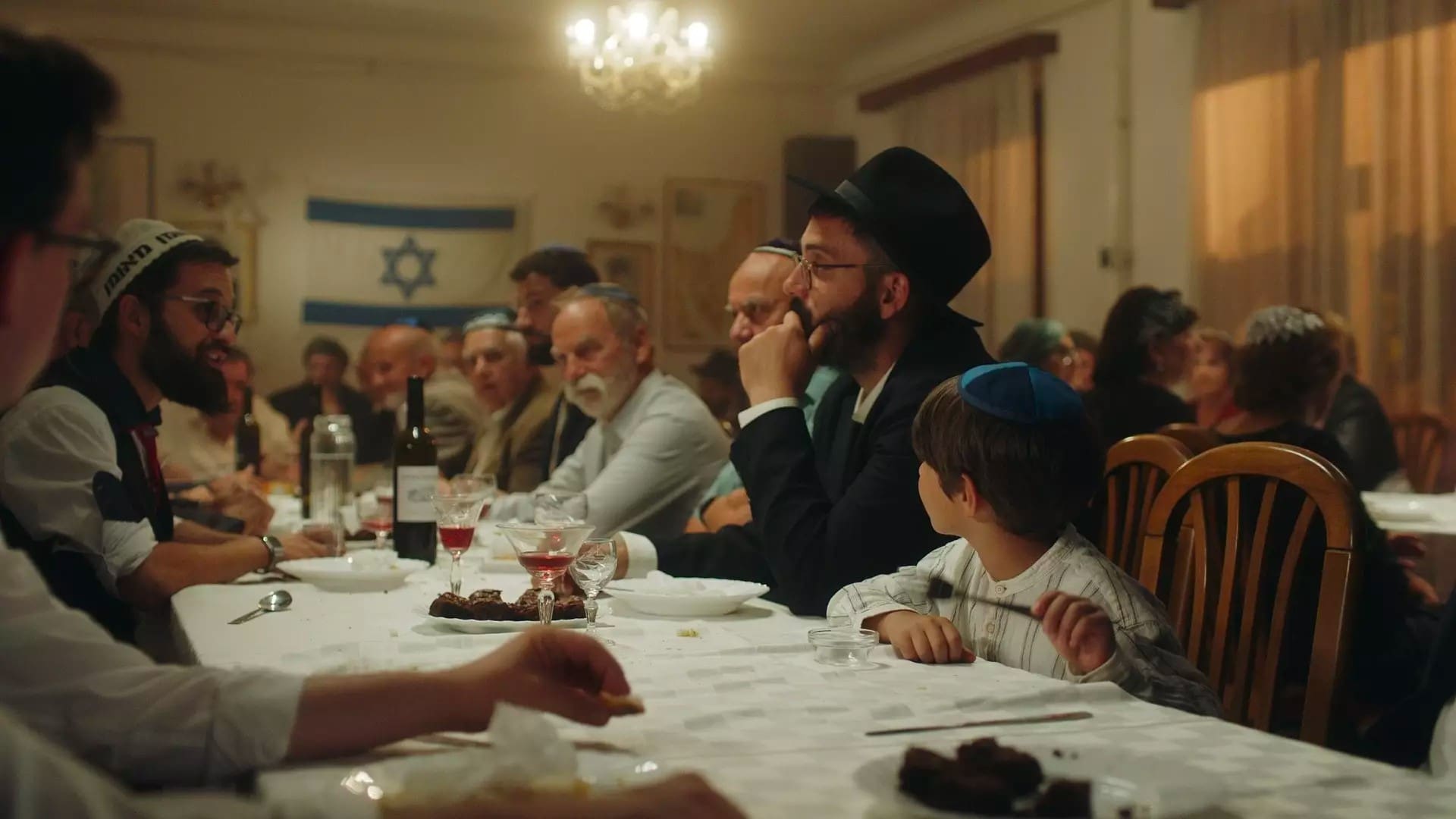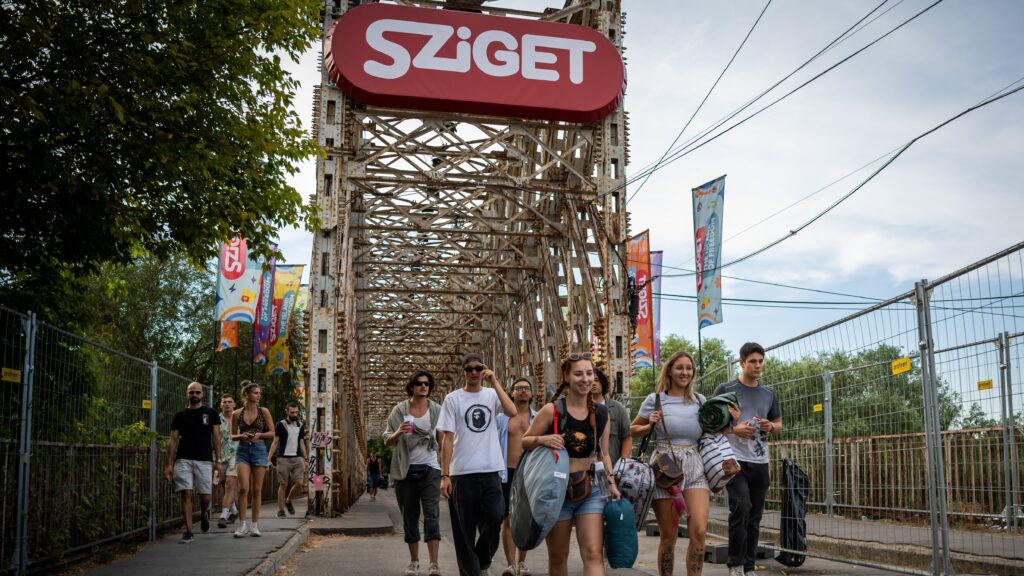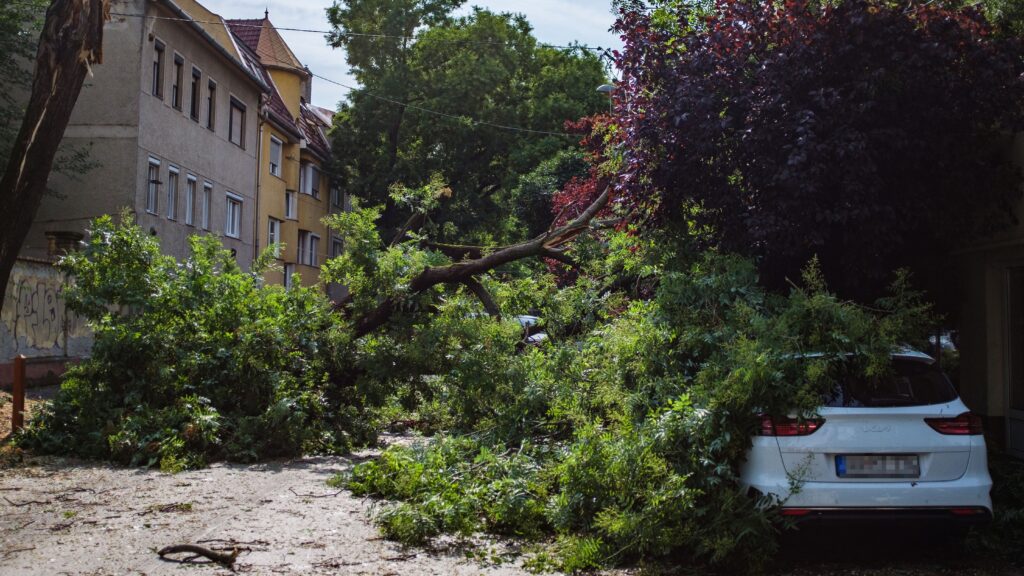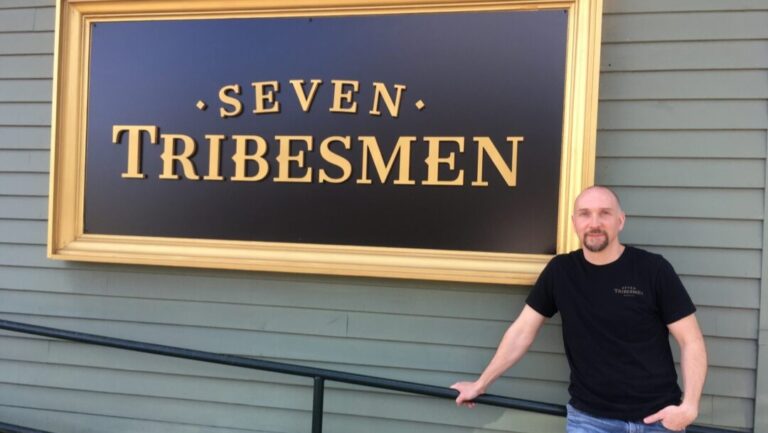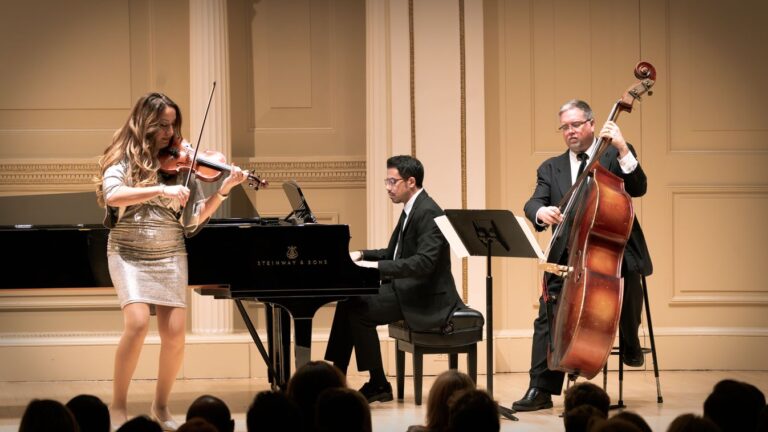After the successful global release at the Palm Springs International Film Festival in California, the screening of Ádám Breier’s new movie, All About the Levkoviches was also a sell-out in New York. The ‘dramedy’ will also be screened at the Miami Jewish Film Festival before being launched in cinemas across Hungary on 22 February. At the screening at Lincoln Center’s iconic Walter Reade Theater as part of the New York Jewish Film Festival, the director was accompanied by co-screenwriter Bálint Csaba, producer Andrea Ausztrics and one of the lead actors, Tamás Szabó Kimmel, who also took part in a short public discussion afterwards.
Tickets were already sold out days before the screening in New York, and there was a long line of people at the box office an hour before the movie went on the silver screen, hoping to get in in the last minute.
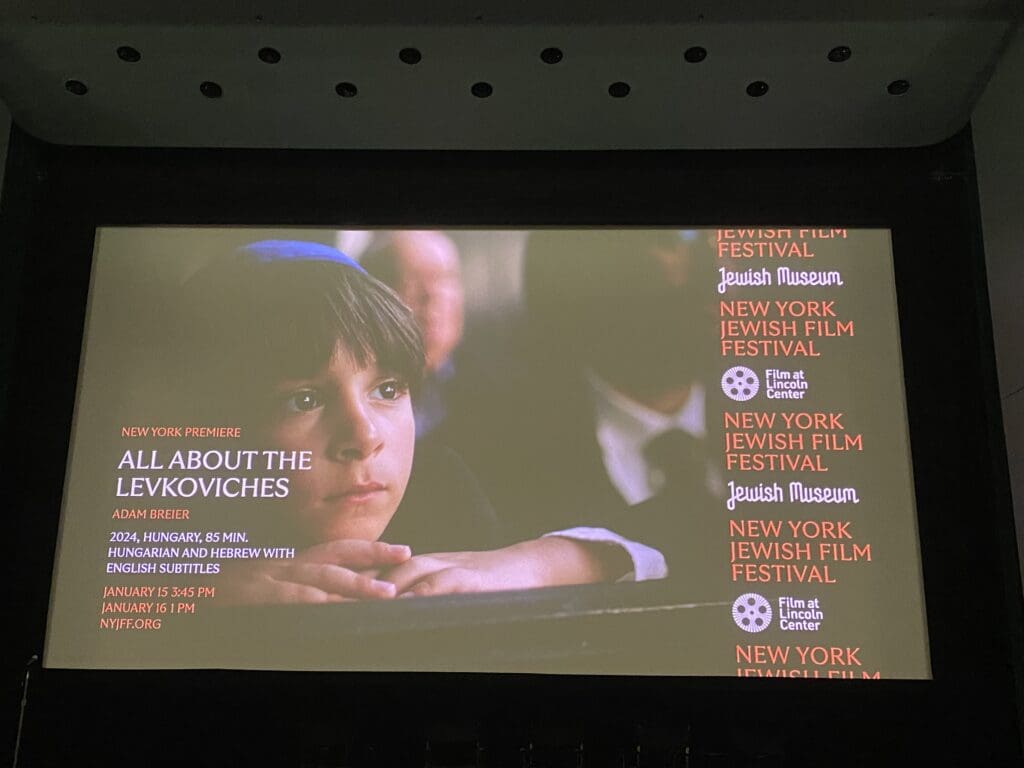
Since I arrived half an hour early, I had time to chat with the couple sitting next to me. The wife, with a Polish-Russian Jewish heritage, has been attending this two-week mega-film festival for 30 years, and her Colombian-born husband has been accompanying her for the past 24 years (since the time they met), supporting his wife in preserving her Jewish culture this way, too. The talkative man took the opportunity to ask the Hungarian journalist sitting next to him (i.e. me) about not only her life in the US, but also the situation of Jews living in Hungary, especially in light of the current war in Gaza. I was happy to tell him that, regardless of the war, one of the largest Jewish communities in Europe can practice its faith and live its culture undisturbed. I also mentioned to him that the synagogue complex of the Dohány Street Synagogue in Budapest, built in the 1850s, is the largest synagogue in Europe and the second largest in the world. So the movie, which was shown in Hungarian and Hebrew with English subtitles, had not even started, but I could already (or rather again) feel like a ‘cultural ambassador’ of Hungary and, after seeing the movie Semmelweis in the fall, once again be proud that so many people overseas were curious about a Hungarian cinema.
I did not know much about the movie before the screening, beyond the official press releases. The plot follows big-hearted but stubborn boxing coach Tamás Lefkovics (Zoltán Bezerédi) in Budapest and his son, Iván (Tamás Szabó Kimmel) who fled to Israel at some unspecified point in the past to escape from the permanent conflict with his father. He has started a family there as an Orthodox Jew, keeping in touch only with his mother (Ágnes Máhr) and he has not spoken to his father for years. When his mother dies unexpectedly, he returns to Budapest with his six-year-old son Ariel (Leo Gagel) for the shiva (a week of mourning in the family home) in accordance with Jewish traditions. However, his father does not observe Jewish traditions at all; thus the conflict is inevitable, as two worlds are pitted against each other through the two men, with the family’s future at stake.
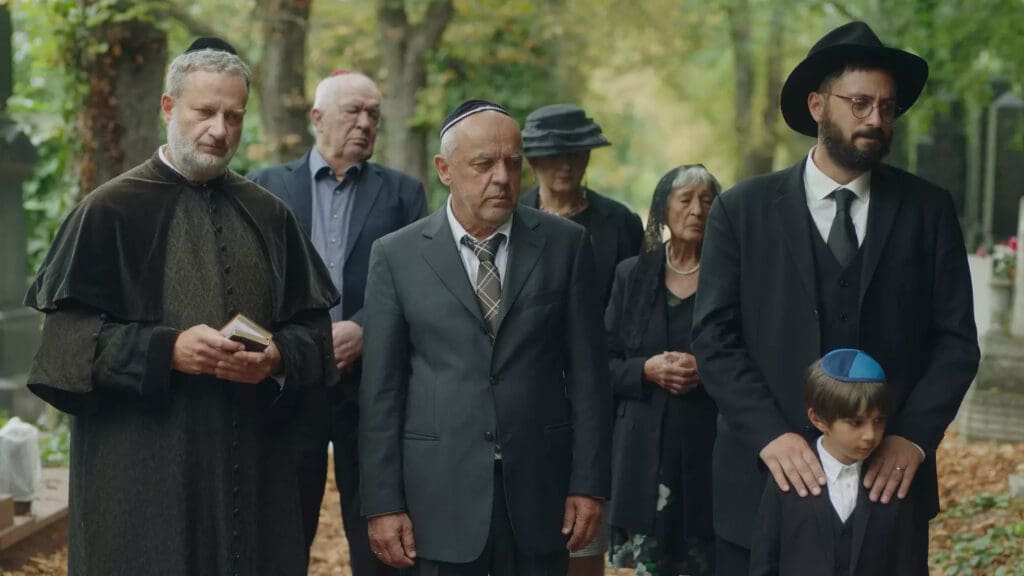
I was curious to see what the first-time director brought out of this intricate plot, and not only was I not disappointed, but
I felt very proud being part of the audience, who reacted with laughter and tears,
and was delighted to receive congratulations afterwards from the couple sitting next to me, and then passing them on to the director and the main actor. The couple next to me even declared that they had seen lots of good movies at the New York Jewish Film Festival over the past thirty years including this year, but this one was outstanding. The moderator leading the post-screening discussion also spoke only in superlatives about the movie, so one thing is for sure: after California, it was a hit with the audience in New York, too, and will most probably be in Miami and, I am quite sure, it will be a success also in Hungary.
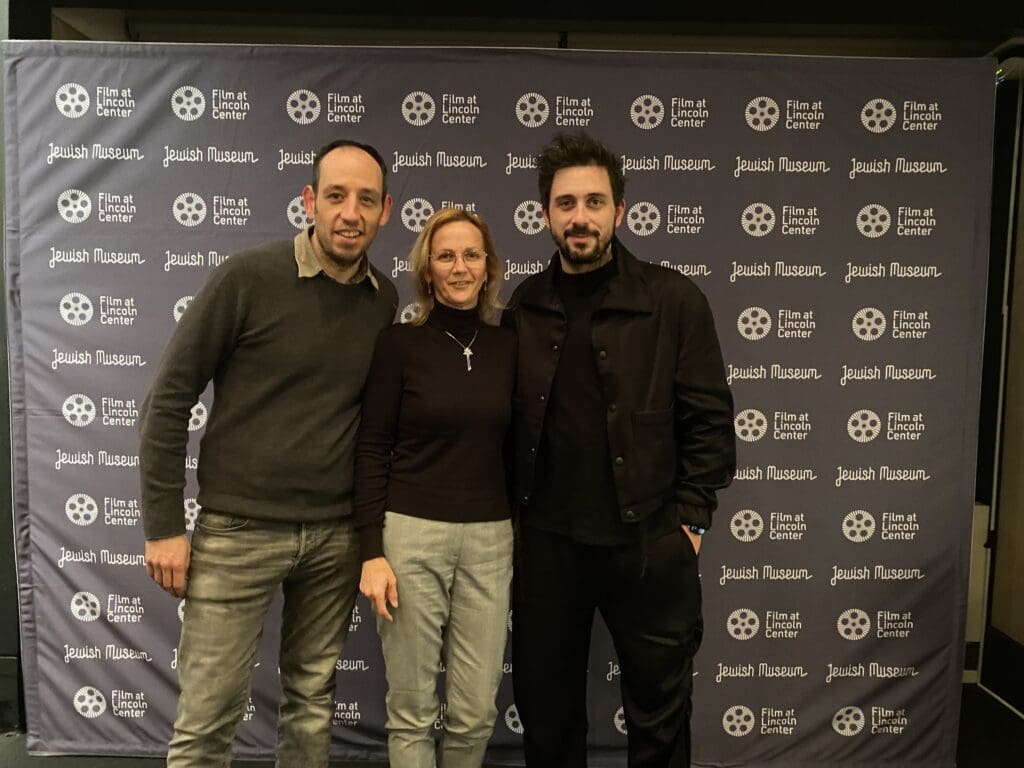
Why is that? When we hear that this is the first movie for both the director and the co-screenwriter, we try not to set the bar too high, but —as the lead actor told the director upon watching the first cut for the first time—it does not feel like a first for either of them. As Ádám Breier revealed at the post-screening public discussion, he had an explicit ambition to make a movie about Jews living in Hungary, but for a long time he could not find the right story until he turned to his own family’s stories. Bálint Csaba, who was asked to co-screenwrite, did the same, adding some of his own Jewish family experience. But Jewish background was not a factor in the adult actors’ casting, and Tamás Szabó Kimmel, in response to a question, revealed that he is not of Jewish origin. Forming his character was a pure acting achievement on his part; which also had a physical aspect, beyond the beard: before the shooting he was asked to stop exercising, eat and drink a lot more to look ’authentic’ for the role. However, the third main character, the six-year-old boy, came from the local Hungarian Jewish community. The director revealed that after it became clear that the budget of the movie based on funding from the Hungarian Film Institute’s Incubator Programme (and some Hungarian Jewish community support) would not allow for the casting of a child actor from Israel, he approached Jewish communities in Hungary looking for a boy who could speak both Hebrew and Hungarian—that is how he found Leo. As he explained, even the experienced adult actors needed some rehearsal—unlike the boy, surprisingly, except for those ghostly scenes he did not understand at first.
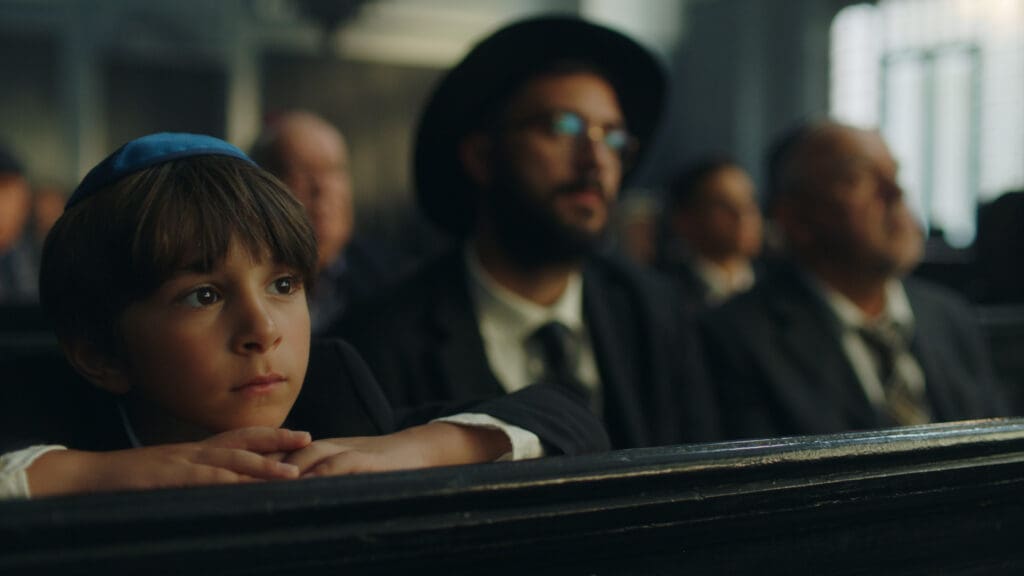
In any case, these difficulties cannot be sensed in the movie, where, in addition to the two male protagonists, who are extremely talented and very convincing (also with their facial expressions in close-up camera shots), the little boy is also excellent throughout, not only with his bilingualism, but also with his equally talkative facial features.
The result is a touching, humorous and charming family movie
where we have the opportunity to look at serious, multi-layered family conflicts, the mourning process experienced in different ways by the actors and several Orthodox Jewish customs (especially but not only those related to mourning), with equal weight from both (father-son, non-Orthodox-Orthodox) perspectives. One can sympathize with both sides and therefore cheer them wholeheartedly to finally address the grievances that have accumulated over the years and were unaddressed until this point. These take place sometimes in the form of yelling angrily at each other, and sometimes through tense or even peaceful discussions. After a week of mourning (and an unexpected visit at a children’s hospital), there is finally reconciliation—so that life can go on with its usual everyday, but no longer insulting, arguments. Two generations and two cultures collide, painfully yet humorously, and with the conviction—perhaps naive to many, but very much welcomed by me—that the time spent together and the discussions, in spite of all the pain caused, can heal (almost) all the wounds we have inflicted on each other in the past.
The action takes place in our time, yet we have the feeling that we are seeing late-Communist Hungary. The main setting is a suburban, crumbling-walled, ‘70s-’80s-style apartment block and its shabby courtyard. For a moment, the Geodézia Zrt.’s building at Bosnyák Square appears, we see the tram of the Grand Boulevard and the building of a hospital (probably Heim Pál Childrens’ Hospital) and its garishly coloured plastic-chair corridor. Strangely enough, the celebration of the Sabbath (which the grandfather eventually attends and he even wears a kippah—as he mockingly calls it: a swimming cap) is taking place in a location that is unfamiliar to me; while the synagogue building on Dohány Street, which is recognizable from the outside, is not visible at all—at least I do not remember seeing it in the movie. Similarly, none of the iconic buildings of Budapest can be seen. Obviously, the shabby locations in the suburbs have been deliberately chosen, but I could not find out for what purpose; and as there was no opportunity for questions from the audience, I could not ask. Although it was a positive and nostalgic experience for me to see these scenes, I also wondered what kind of Budapest (and thus of Hungary) the audience will get to know through this movie.
Although I have not seen the other characters mentioned in the available press releases, I would like to highlight them as well: the boxing ‘apprentice’ Ferike (I have not been able to detect the young and talented actor’s name yet), who comes from a disadvantaged background and is seen by the grandfather as his adopted son, and who has the role of bringing the old man and his son closer to each other with his simply formulated questions, asked out of sincere concern. The grandfather’s friend Zsiga (András Török), the son’s Orthodox Jewish wife (I could not track her name either) and the rabbi (András Kardos) have the same tasks in the plot. The latter even allows himself to address a joke to the mourning grandfather who escapes to the toilet during the funeral reception.
The movie was supported by the Hungarian Film Institute’s Incubator Programme,
co-produced by ULab and Proton Cinema, with the contribution of Zoltán Dévényi as director of photography, produced by Miklós Kázmér, Ádám Felszeghy and Andrea Ausztrics, and executive produced by Claudia Sümeghy. Andrea Ausztrics explained to the audience in New York how movies are being made and financed in Hungary and what their plans with this movie are: after the three American festivals (the next screenings are in Miami on 22 and 24 January), they plan to screen it throughout the US, and after the Hungarian premiere on 22 February, they also plan to have it introduced at several movie festivals across Europe.
More information about the Miami screenings can be found HERE and the trailer is accessible HERE.

